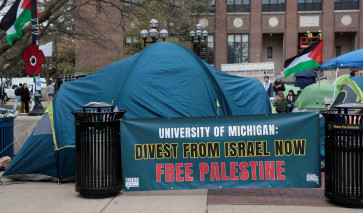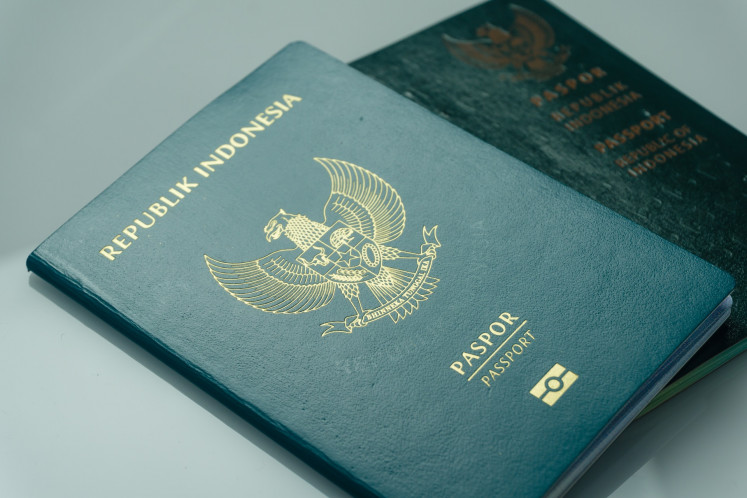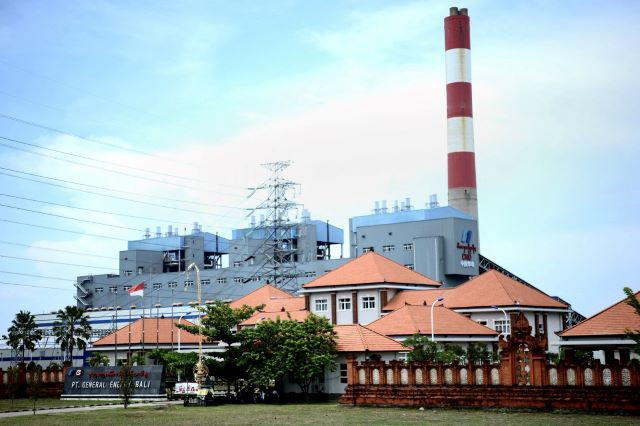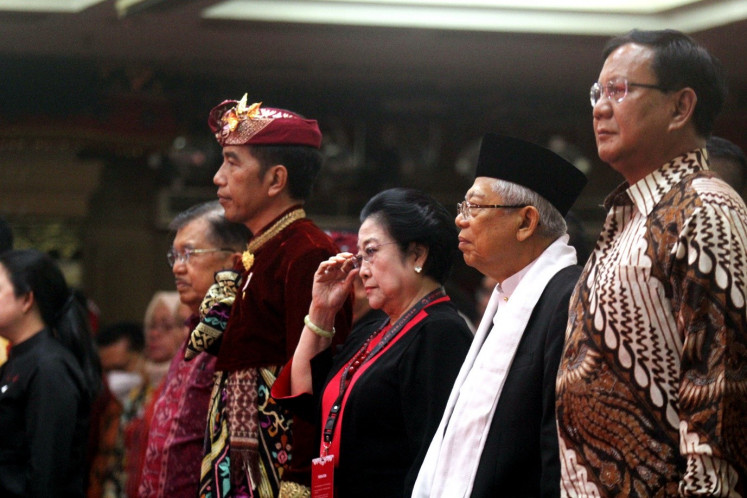Tolerance Day: Learning from Wahib
International Tolerance Day was commemorated on Nov
Change Size

I
nternational Tolerance Day was commemorated on Nov. 16. Lack of tolerance is still a problem, as evident in the ongoing inability of the GKI Yasmin congregation in Bogor, West Java, to use their own church building. The Ahmadiyah minority still faces discrimination even by the Religious Affairs Ministry, which should cultivate tolerance amid diversity.
Then there are the Shiites in Sampang, Madura, East Java, who are being required to convert to the 'proper' Islam if they want to return home. Meanwhile, Indonesia's President was honored earlier this year for his efforts to instill a culture of tolerance.
The crucial issue at stake is integration in society. Many think that the majority should be respected because of their dominance in numbers. That is why it is not odd to see a regulation stating that to build a religious building one has to seek approval from neighbors.
This requirement reflects two sources of fear: First, to integrate in a society, people need to seek approval from the 'host'. In asking for such approval for a house of worship, there are three possible answers: yes, no or conditionally accepted. If we are lucky, people will be quite open to receiving new neighbors.
Second, it is clear that the government neglects Indonesia's diversity, because to avoid inter-religious conflicts, the regulation instead prevents people from living together in a diverse environment.
It is then clear that this is a problem of integration. Such a regulation is ridiculous. By passing a law that potentially prevents people from living with others of different faiths, people will then never learn how to live in diversity based on tolerance.
Unsurprisingly newcomers often find their proposals to build houses of worship rejected, when residents of the majority faith refuse to consider leaving their comfort zone to admit others.
To strengthen the objection, issues of religion and blasphemy are often abused In the name of integrity and social harmony, the government is actually throwing out tolerance and diversity.
The annual Ahmad Wahib Award encourages inter-faith tolerance, expressed through essays, videos and also blogs. The late Ahmad Wahib was a Muslim imbued with openness and tolerance, a fearless young man known for his controversial thoughts on Islam.
In his diary, first published in 1981 as Pergolakan Pemikiran Islam: Catatan Harian Ahmad Wahib (The upheaval of Islamic thought: The diary of Ahmad Wahib), we can read how his thoughts shaped him to be an advocate of tolerance. His most important aphorism appears to me to be this one: 'I am not a nationalist, a Catholic, or a socialist. I am not a Buddhist, Protestant, or westernist. I am not a communist. I am not a humanist. I am everything. Hopefully this is what is called a Muslim. I want people to value and view me as an absolute entity without having to associate me with any group or school of thought. Understanding human beings as human beings [free translation].' Wahib clearly sought to say that if people want to be true human beings, we must be inclusive. To act beyond every kind of identity that would eventually exclude us from others is a must because by doing so, people will make a break from their bias of identity.
Budi Hardiman in his treatise on human rights, culture and religion, said people had two innate natural drives: motivation and intuition.
Thus, if people help others because they share the same faith, religion can be a motive but they should have an intuition to help others regardless of their religion.
Would one remain silent in the face of the needs of someone else of a different faith, while religions
always teach goodness?
This is what Indonesians need, to be more open toward others as humans. Human beings are very vulnerable and need others to cooperate, not to divide. If integration is only based by religion, it will be a step backward.
If we always fear the presence of others, when will we become an absolute entity, as Ahmad Wahib mentioned, one that can break free from religious identities and mingle with others to build a better society?
The government has a big task in promoting a culture of openness instead of neglecting diversity. Human beings should not be regarded as a blunder by God; thus people should be able to integrate amid diversity as God has created each of us to be unique in our nature.
The author, a chemical engineer, won the Ahmad Wahib Award at itsannual interfaith writing contest in 2012.









